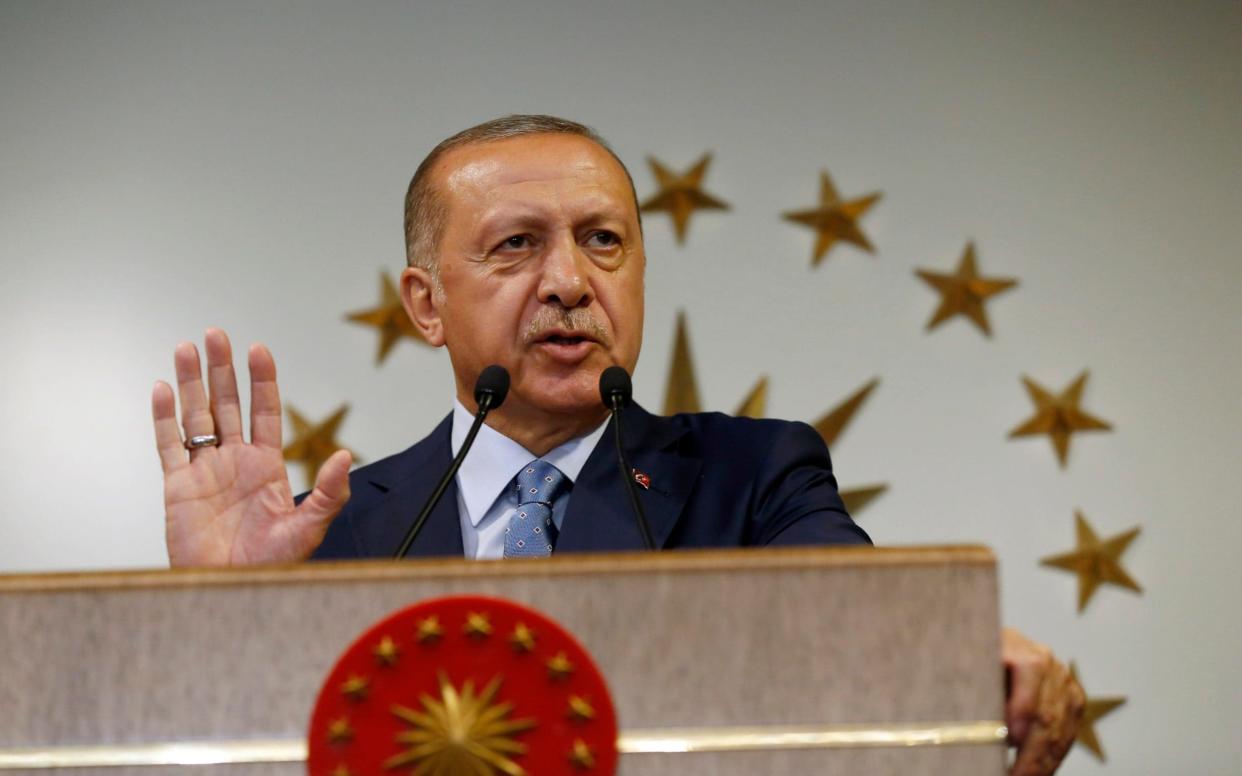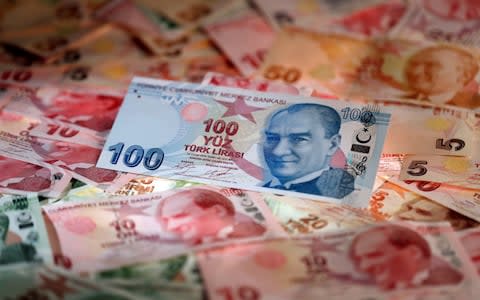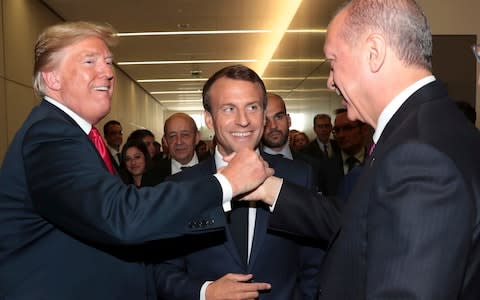Trump drives down Turkish lira amid talk of 'economic war'

The US will double tariffs on steel and aluminium on Turkey to 50pc and 20pc respectively as the lira tumbles and investors fear a contiagion effect on other emerging markets.
The move comes after President Tayyip Erdogan of Turkey told his citizens to sell their savings held in euros and dollars and buy lira in order to prop up the lira, citing an “economic war” after the country’s currency has plummeted.
President Donald Trump tweeted shortly afterwards announcing the doubling of tariffs, adding that the lira was sliding against the "very strong dollar". The levies will hit the billion dollars' worth of steel exports Turkey exports to the US each year.
I have just authorized a doubling of Tariffs on Steel and Aluminum with respect to Turkey as their currency, the Turkish Lira, slides rapidly downward against our very strong Dollar! Aluminum will now be 20% and Steel 50%. Our relations with Turkey are not good at this time!
— Donald J. Trump (@realDonaldTrump) August 10, 2018
"Our relations with Turkey are not good at this time," Mr Trump said.
The escalation follows a diplomatic row between the two Nato allies. Turkey's detention of American pastor Andrew Brunson on terror and espionage charges provoked retaliatory sanctions from the US against two Turkish ministers.
The value of the Turkish lira has dropped sharply, ramping up fears of a contagion effect across emerging markets that could damage the world economy.
The lira hit a low of 13pc down against the dollar on Friday following an escalation of the tensions between Turkey and America. The currency has shed 22pc of its value since late July.
Here is Turkey's chart of doom.
Let's see how long before Erdogan blinks pic.twitter.com/OOw4xtZQAw— Rahul Sahu (@iRahulSahu) August 10, 2018
Turkey’s currency woes now place it ahead of Argentina in terms of its weakening against the dollar this year. The lira has depreciated by almost 40pc in 2018, compared to the peso’s more than-30pc fall since the start of the year.
Salman Ahmed at Lombard Odier said that the Turkish central bank’s inaction in the face of a “credit-fuelled overheating of the economy” lay behind the downward forces acting on the lira and other assets.
As the currency has become cheaper, concerns about inflation - the buying power it holds - have mounted.

However, while Argentina sought to combat the sudden uptick in inflation by hiking interest rates to more than 40pc and seeking a bailout from the IMF to combat capital flight - when investors suddenly withdraw funds - Turkey has made no such steps.
Mr Erdogan has previously described himself as “an enemy of interest rates” and told state TV ahead of a speech on Friday that “we will not lose the economic war”.
Sergi Lanau at Institute of International Finance told The Daily Telegraph that there was "a high risk" of a very large drawdown of international reserves in Turkey to cover its external financing needs of 25pc each year, as markets lose faith in the country.
There was also growing potential of captial flight away from other emerging markets, Mr Lanau said.
"The rand is the worst-performing EM currency today excluding the Turkish lira, suggesting that markets are indeed worried about South Africa’s financing needs and capital flows risks," he added.
Some economists have suggested that capital controls may be imposed in Turkey. These are limits on the money that can move in and out of a country in order to stem an outward flow of money.
These alone will not be enough shore up the economy, however.
Within hours of being sworn in this July, Mr Erdogan appointed his son-in-law, Berat Albayrak as finance minister, and granted himself sole power to appoint rate setters at the central bank.
The move further undermined investor confidence in the country, citing a lack of independent monetary policy.
A key meeting on July 24 saw the central bank hold rates steady rather than raise them to combat inflation.
Mr Ahmed said: “This latest bout of negative sentiment is partially a result of the central bank’s reluctance to commit to continued monetary tightening under Erdogan’s watchful eye.

Paul Greer at Fidelity International said dramatic interventions were now needed as Turkey faced a “downward spiral” of investor confidence.
These could include the appointment of “pragmatic technocrats” and severe fiscal austerity to address high debt levels.
An immediate “aggressive interest rate hike” was also needed, Mr Grier said, with something of the order of 1,000 basis points as seen in Argentina this year. Such a move would slow the country’s economy down, after it had overheated considerably.
Turkey is just one of the emerging market economies experiencing "cooling growth momentum and higher inflationary pressures" according to Mr Grier, "all of which keeps investors on the backfoot".

